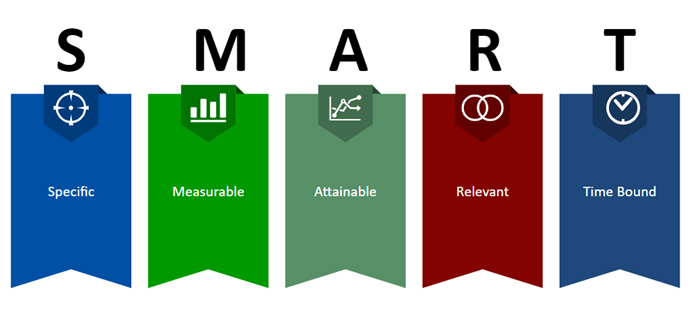In part 1 of our Campaign Planning series, this article will discuss the importance of campaign marketing to your company’s growth and how to lay out your goals and objectives.
For B2B businesses, it’s critically important to have a plan – and that includes a plan for reaching your marketing goals! After all, how will you know that your marketing efforts have worked without first focusing on what you’d like to achieve and how to go about doing it? In this four-part series, we’re going to be discussing the ins and outs of campaign planning and why it’s so crucial to increasing sales, building your brand, and keeping your business on target to reach your goals. But you’ve got to start somewhere, so in this first article we’re going to discuss:
- The importance of marketing campaign planning
- Understanding your goals and objectives
Why is Marketing Campaign Planning So Important?
Taking the time to plan your campaign will pay off in the long run
 Having a marketing plan with clear goals and objectives will set you up for success.
Having a marketing plan with clear goals and objectives will set you up for success.
We all know that planning ahead can save time and money, whether it’s creating a logical way to achieve goals, or planning for a trip. You wouldn’t just go off to someplace far away without a plan, right? Well, maybe some people would. But when it comes to increasing sales and building your brand, it’s always best to have a well-laid-out plan of attack. Building marketing goals is a smart decision since it will provide specific and measurable metrics from which you can determine your success. Goal setting is also crucial since those companies that write and organize their goals have a much better chance of achieving them. In fact, businesses have a 538% more chance of success when marketing strategies are documented. That’s a staggering number!
Developing a clearly defined marketing goal also helps keep your team focused. Having objectives in place allows them to achieve those goals, step by step. This visibility allows those involved to see how the campaign is coming together and makes it easier to collaborate and make tweaks as the process moves along. After all, companies that set clear goals have a 429% higher chance of success than companies that do not. Did you know that marketing goals also:
- Create alignment across your company
- Impact sales and revenue
- Allows you to have a targeted approach
- Give you insight into the marketing collateral
- Helps you track spending and ROI
There are clearly multiple benefits to having a plan in place to achieve your goals, so let’s delve into how to get started.
Creating Your Marketing Goals and Objectives
 Follow the SMART system to set up your marketing goals and objectives
Follow the SMART system to set up your marketing goals and objectives
The first step in your marketing campaign is to establish your goals and objectives. Do you want to increase sales and revenue? Promote brand awareness or a new product or service? Or perhaps you just want to boost user engagement or advertise for a big event? Whatever your big goal is, write it down, because the next step is creating SMART objectives to help you attain that goal. Objectives are measurable steps that your team can take to reach your target goal. In order to qualify as a SMART objective, it must be Specific, Measurable, Attainable, Relevant, and Time-Bound. Let’s explore a little more about what that means.
- Any objective you use to attain your goal should be defined and precisely lay out what it is you want to accomplish. This helps target your focus so that you create a plan for success. In order to get very specific, try to answer the 5W questions–who, what, when, where, and why.
- Objectives should be quantified in order to track progress, set milestones, and meet deadlines. This helps to determine whether or not your endeavor was successful or not.
- Ensure that your objective is attainable, given the time, skills, and resources you have available. This does not mean it has to be easy. Challenging objectives cause companies to reach for their full potential and find new ways to be successful that may have previously been overlooked.
- Your objective should always align with the overall mission of your company, and the achievement of your campaign planning goal should be important to those involved.
- Time-Bound. Definite time frames, target dates, and deadlines create a sense of urgency–and urgency gets things done! Creating long-term objectives that can be met with shorter-term deadlines is a great way to set yourself up for success.
When creating your objectives, make sure each stands up to the SMART criteria. That way, you’ll be creating a clear, focused path towards your goal.
Planning a marketing campaign by setting up goals and objectives is a proven pathway to success. At Company Expert, we partner with our client’s hand in hand to help them reach their goals and succeed. We have found that detailing their goals by using SMART objectives significantly increases their chances of success.



